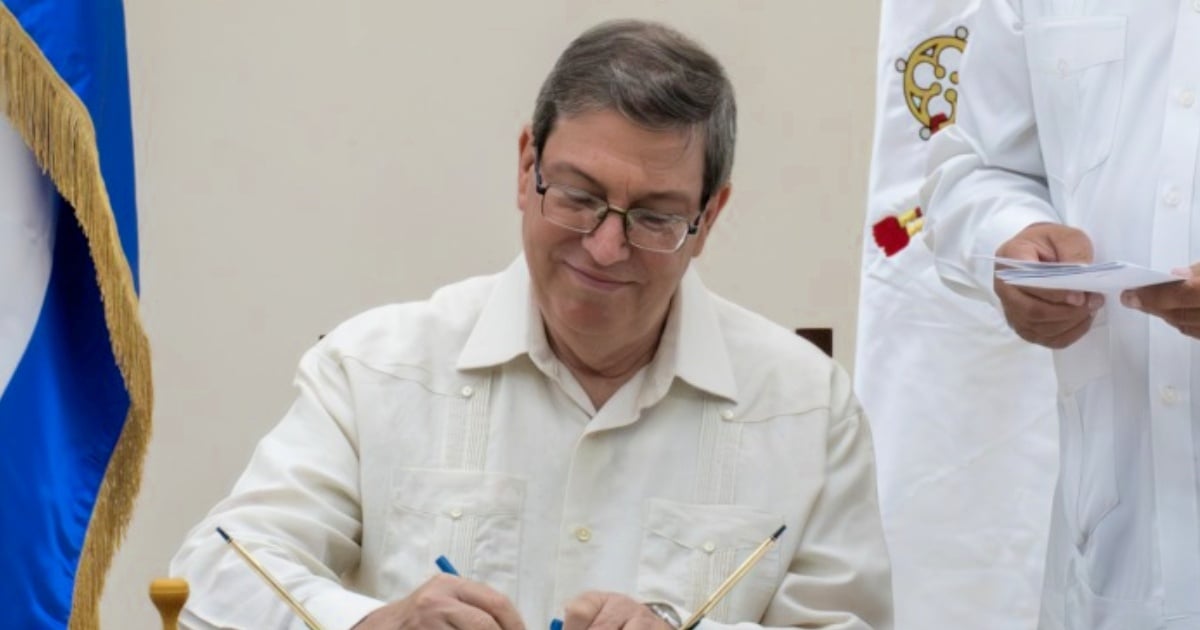The Cuban regime lashed out at the United States on Thursday, denouncing the recent decision to partially restrict the entry of Cuban nationals into the U.S. as "racist" and damaging. Cuba finds itself on a list alongside seven other nations, including Venezuela. Bruno Rodríguez, Cuba's Minister of Foreign Affairs, took to the social media platform X to claim that the "new entry ban to the #USA for citizens of several countries is rooted in racism, backed by anti-Cuban politicians."
Rodríguez further warned that this measure "hampers the connection between Cuban families," referencing the estimated 1.5 to 2.5 million Cubans and their descendants living in the United States according to various studies. He emphasized that the newly imposed restriction "harms personal, professional, academic, and cultural exchanges between the two countries."
Public Outcry: "Since When Do You Care About Cuban Families?"
Rodríguez's post triggered a wave of critical responses from users online, many of whom expressed outrage over the mention of family separation. "Since when do you care about Cuban families? You have been separating them since day one. Murderers, you're scared, your time is running out. Down with the dictatorship!" one citizen exclaimed.
Another user accused the Cuban government of perpetuating these conditions, stating, "You and your government have promoted this. You continue to subject the people to inhumane conditions. Should I list them for you?"
A third indignant response blamed Fidel Castro for the initial family separations, saying, "Who started with the division of families? The biggest SOB our country produced, the Rock. Now you're desperate and need the exiles, worms, dissidents, ex-Cubans, etc. Go to hell with your clunker. SOB."
Another commenter concluded, "Blah blah, it's you who have messed things up for 70 years, always taking dollars from the exiles."
The New Executive Order from the U.S.
President Donald Trump signed an executive order on Wednesday prohibiting the entry of nationals from 12 countries into the United States, while imposing partial restrictions on seven others, including Cuba. This order, effective June 9, completely bans citizens of Afghanistan, Myanmar, Chad, the Republic of Congo, Equatorial Guinea, Eritrea, Haiti, Iran, Libya, Somalia, Sudan, and Yemen from entering the U.S.
The order also places limitations on nationals from Burundi, Cuba, Laos, Sierra Leone, Togo, Turkmenistan, and Venezuela, citing "national security risks" as the reason. Regarding Cuba, the official document states that the island "is a state sponsor of terrorism. The Cuban government does not cooperate or share sufficient law enforcement information with the United States. Historically, Cuba has refused to accept the return of its deportable nationals."
Additionally, the Overstay Report indicates that Cuba had a B-1/B-2 visa overstay rate of 7.69% and an F, M, and J visa overstay rate of 18.75%. Consequently, the order suspends the entry of Cuban nationals into the United States as immigrants and non-immigrants under B-1, B-2, B-1/B-2, F, M, and J visa categories. The order also stresses that "consular officers are to reduce the validity of any other non-immigrant visas issued to Cuban nationals as permitted by law."
The White House clarified that these partial restrictions allow specific exceptions for lawful permanent residents in the U.S., individuals with valid visas, applicants in certain visa categories, and those whose entry is deemed in the national interest. According to government officials, the proclamation was expedited following an antisemitic attack in Boulder, Colorado on Sunday, although the measure had been under consideration prior to the incident.
Key Questions on U.S. Entry Restrictions for Cubans
What are the reasons behind the U.S. entry restrictions for Cuban nationals?
The U.S. has cited national security risks, Cuba's designation as a state sponsor of terrorism, and lack of cooperation in law enforcement as reasons for the restrictions. Additionally, high visa overstay rates by Cuban nationals have also been noted.
How has the Cuban government responded to the U.S. restrictions?
The Cuban government has strongly criticized the restrictions, labeling them as racist and damaging to family ties, as well as personal and cultural exchanges between the two nations.
Are there any exceptions to the U.S. entry restrictions for Cubans?
Yes, exceptions exist for lawful permanent residents, individuals with valid visas, applicants in certain categories, and those whose entry is considered in the national interest.
